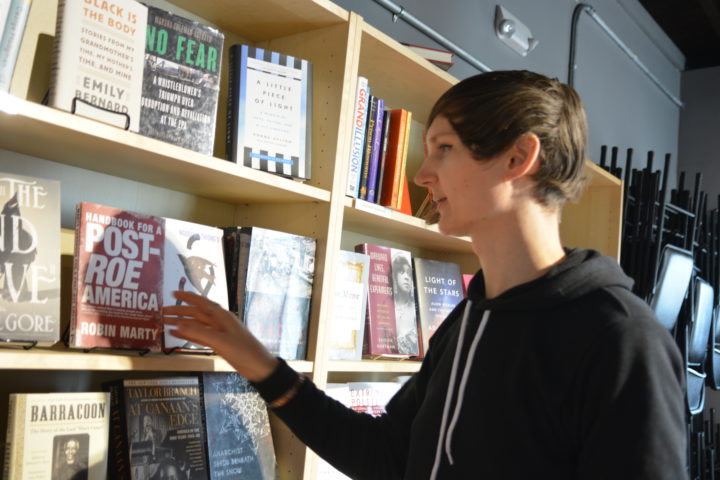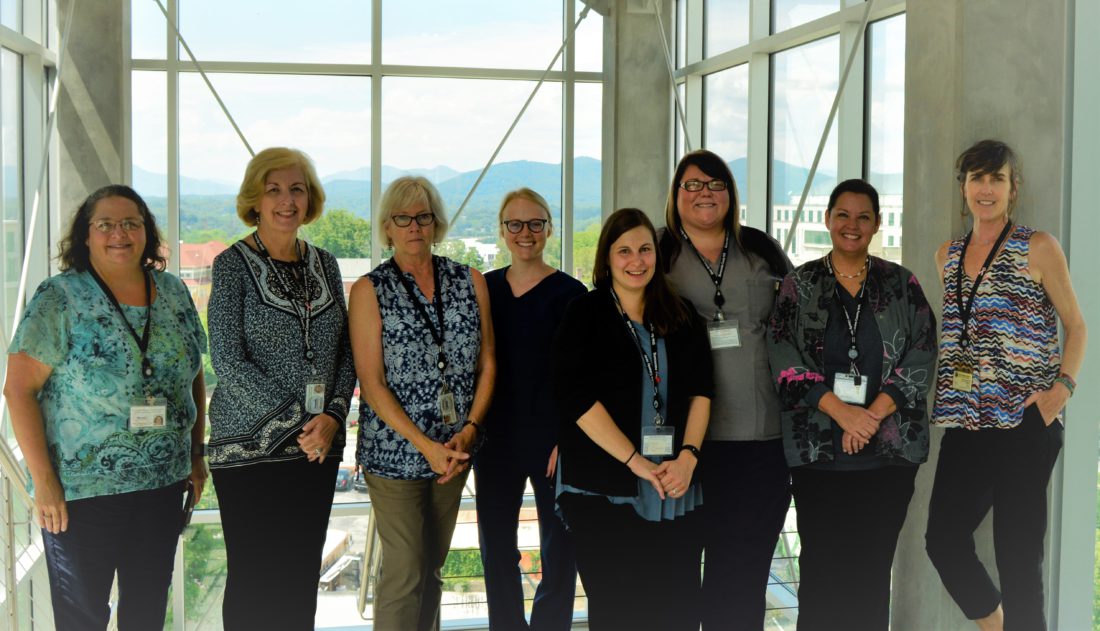The irony that an anarchist bookstore would work hand in hand with a government agency amuses Firestorm Bookstore Co-op co-owner Libertie Valance. But the West Asheville store’s staff and owners believe in working for the good of the community alongside anyone who can help make local life better and safer.

Accordingly, Firestorm will team up with the Buncombe County Department of Health and Human Services to host quarterly diagnostic clinics for sexually transmitted diseases.
“I didn’t know what the reaction would be the first time we held it, but we did it twice last year, and the lines were out the door,” says Valance. “A lot of these people would have an aversion to going downtown to a government building to be tested.”
The clinic tests for HIV, hepatitis A and C, syphilis and chlamydia, and people who test positive can be referred for treatment.
The store has also partnered with public health nurses to distribute condoms and with a syringe exchange program to help prevent the spread of HIV among people who use intravenous drugs.
Grassroots health care
Public health nursing is all about getting out into the community to improve people’s health where they live, work and eat. It may not be glamorous, but it’s an opportunity to really make a difference, says Hayley McPeters, one of nine Buncombe County nurses honored recently as part of a statewide campaign.
North Carolina’s Office of Public Health Nursing turned 100 last year, and several professional organizations observed the anniversary by recognizing 100 distinguished public health nurses across the state. A joint project of the N.C. Association of Public Health Nurse Administrators, the N.C. Public Health Association’s Nursing Section and the state’s Office of the Chief Public Health Nurse, the effort accepted nominations based on the person’s contributions in one or more of four categories: collaboration, innovation, community-centered care and professionalism.
McPeters, who works in the county health clinic, does diagnostic testing and educates community members about family planning, breast and cervical cancer control, immunizations and foreign travel. “We fill a lot of roles,” she says. But both McPeters and fellow award recipient Susan Creede believe education may be their most important contribution.
“What we do combines the science of nursing with the science of public health,” McPeters explains. “We use the nursing process, critical thinking skills and evidence-based science.”
According to a history published by Appalachian State University, public health nursing began in New York City in 1893, when Lillian Wald established the Henry Street Settlement. Nurses trained in hospital care took their skills and knowledge into the overcrowded tenements that were home to many of the city’s poor and immigrants. For most patients, it was the only access to care that they had.
But these nurses soon realized that the illnesses they were seeing in people’s homes were related to broader issues, and they began working to improve sanitation, nutrition and education.
“It places the whole person in the forefront,” says Stacey Wood, public information officer for the Buncombe County DHHS.
Public health nursing reached North Carolina in 1904, when Amelia Lawrason moved to Wilmington to care for her grandmother and was hired by the Ministering Circle of the National Order of King’s Daughters, an ecumenical women’s organization, to provide home care to poor people in the city. In the following years, more rural towns and charitable organizations hired nurses to work with people in poverty, and in 1919, the state partnered with the American Red Cross to establish the Bureau of Public Health Nursing and Infant Hygiene.
Coordinating care
In today’s increasingly specialized environment, public health nurses help connect the dots, says Ellis Vaughan, the clinical services coordinator and director of nursing for Buncombe County DHHS. “We coordinate care,” she explains. “We work with the county Family Justice Center, with the Haywood Street Congregation, with Firestorm and a lot of others.”
Public health nurses work to contain disease outbreaks, run diagnostic clinics, and go into schools and other public places to educate people about healthy life choices. They educate new mothers about how to care for their infants and help public officials prepare for health emergencies. They also collect and analyze data.
Harm reduction is a major focus. It includes helping people addicted to opiates stay alive by providing access to clean needles and Narcan (an emergency anti-overdose treatment), distributing free condoms to stem the tide of sexually transmitted diseases, screening for illnesses that are best treated early and referring patients to clinics where they can get the care they need.
“We work on an individual and a community level,” says McPeters. “People may not think it’s very exciting, and we don’t generate a lot of flashy headlines.”
“But we do leave people healthier and more educated and aware,” notes Creede, completing her colleague’s thought.




These nurses are the unsung heros of Buncombe County. They don’t stop until the work is done. Smart and capable they are the firewall for keeping our community safe.
These are the wonderful helpers in Buncombe. They are great, great humanitarians. Mission Hospital (their so-called executive brainos) could learn a few things about character and decency from them! Thank you, nurses of Buncombe…we love you!